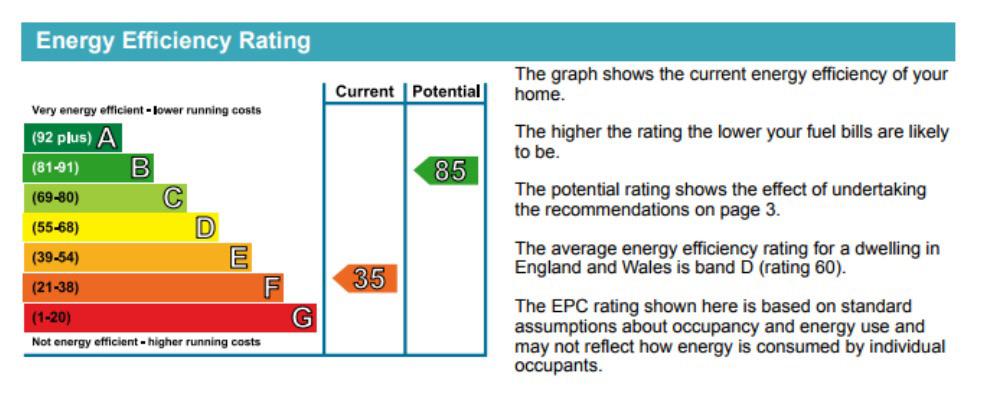
2 minute read
Mortgages & Energy Performance Certificates (EPC
from SKQ Issue 9
by SKFinancial
Neil

Advertisement
ENERGY PERFORMANCE CERTIFICATE (EPC)
IMPORTANT NEWS FOR LANDLORDS AND TENANTS
If you’re a landlord or thinking about selling your home, you will need a valid EPC rating for your property. Without it, you will not be able to legally let or sell your property, so it is well worth looking into.
An EPC or Energy Performance Certificate gives detailed information about your property’s energy efficiency and carbon dioxide emissions. No doubt you will have seen those coloured bar charts on property details, with corresponding letters - A (very efficient) to G (inefficient). That’s the property’s EPC rating.
Renew every 10 years
But what many people don’t realise is that these ratings are only valid for 10 years and there are very clear rules as to what efficiency rating you must achieve if you’re going to let or sell your property. If you’re unsure when your rating was last done, you can simply visit the government site here to find out whether or not it has expired. They also give you helpful tips on how to improve the energy performance of your home.
If you find you do in fact need a new certificate, then simply visit the ‘get new energy certificate’ page to organise. Bear in mind that the cost of an assessment varies by assessor and the size of the property. After the assessment, the assessor will give you a digital copy of your certificate, but you can also view or print an existing energy certificate online. But simply having an EPC rating is not the only thing you need to consider. Achieve an energy rating of E or above
Back in April 2018, the Minimum Energy Efficiency Standards (MEES) came into force. This required all properties being let in England and Wales to have a minimum EPC rating of ‘E’. From 2020, the MEES applied to all existing tenancies – not just new ones or renewals. If your property does not have an energy rating of E or above it cannot be legally let out. If the property is being sold, there is no minimum rating but an Energy Performance Certificate is required.
What’s more, the Department of Business, Energy and Industrial Strategy (BEIS), is now leading on a consultation to improve the energy performance of privately rented homes, which if implemented as legislation, would see the minimum EPC rating increased to C from 2025 for new tenancies and from 2028 for existing tenancies.
Use your EPC for better mortgage deals
The EPC rating also plays a crucial part in your mortgage application. As part of the valuation process a valid EPC is required in line with the lender’s criteria.
And if you have a highly efficient home, it could be worth looking around for what some lenders are calling ‘Green Mortgages’. This means buying or owning an energy-efficient home could offer you more favourable terms. This could mean either getting a slightly lower interest rate, or cashback when you take out the mortgage, or both. As such it is well worth reviewing your property’s EPC rating online and considering the recommendations made to improve the efficiency of your property.





